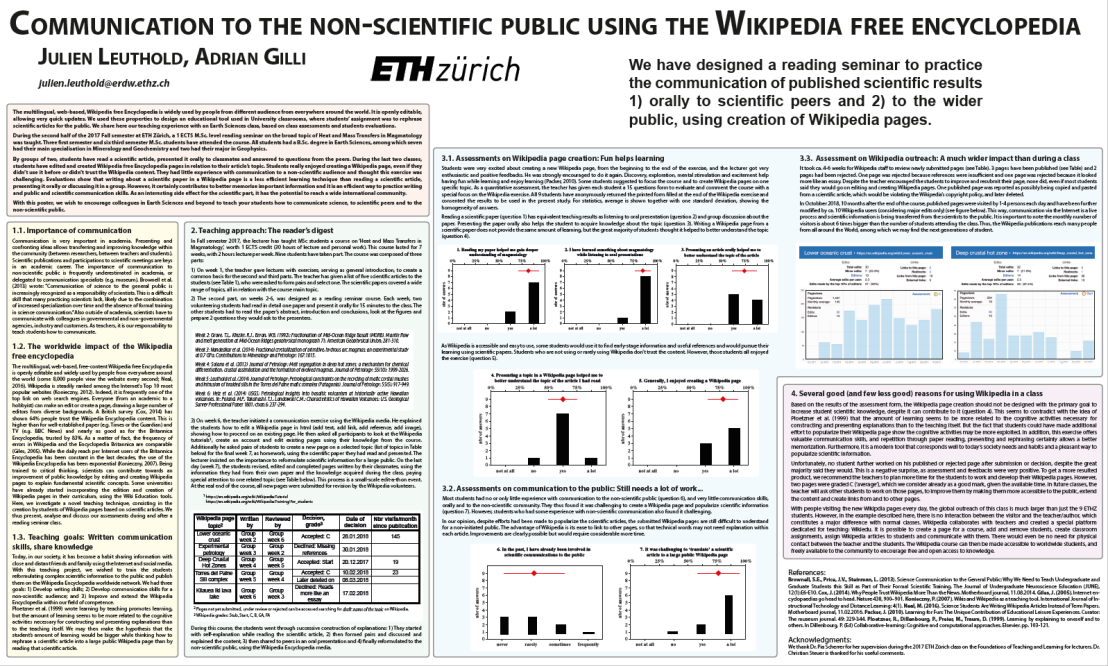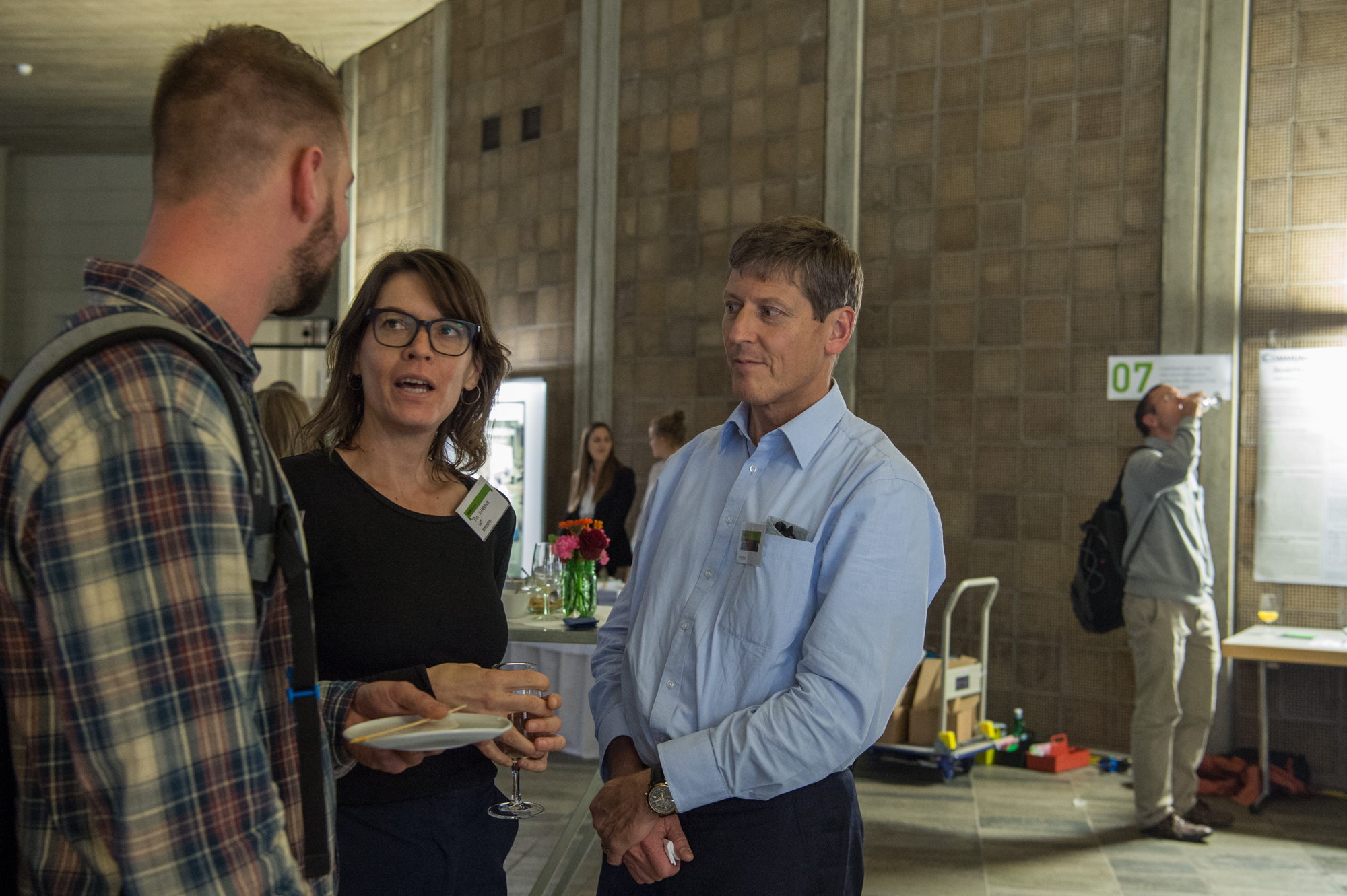Communication to the non-scientific public using the Wikipedia Free Encyclopedia
Booth #07

We have designed a reading seminar to practice the communication of published scientific results 1) orally to scientific peers and 2) to the wider public, using creation of Wikipedia pages.
Authors
Dr Julien Leuthold, D-ERDW, Institute of Geochemistry and Petrology
Dr Adrian Gilli, D-ERDW, Educational Developer
Abstract
Communication is very important in academia. Presenting and confronting ideas allows transferring and improving knowledge within the community. Scientific publications and participations to scientific meetings are keys in an academic career. The importance of communication to non-scientific public is frequently underestimated in academia, or delegated to communication specialists (e.g. museum). We have designed a reading seminar to learn and practice oral communication of published scientific results to scientific peers and written communication to the wide public using the multilingual, web-based, Wikipedia free Encyclopedia. The latter is widely used by people from dif-ferent audience from everywhere around the world. It is openly editable, allowing very quick updates. We share here our teaching experience with an Earth Sciences class, based on class assessments and students evaluations.
During the second half of the 2017 Fall semester at ETH Zürich, the teacher has taught a 1 ECTS M.Sc. level reading seminar on the broad topic of Heat and Mass Transfers in Magmatology. Three first semester and six third semester M.Sc. students have attended the course. All students had a B.Sc. degree in Earth Sciences, but seven where regis-tered in the Institute of Geochemistry and Petrology Institute and two in the Institute of Geophysic.
By groups of two, students have read a scientific article, presented it orally to classmates and answered to questions from the peers. During the last two classes, students have edited and created Wikipedia free Encyclopedia pages in relation to their article’s topic. Students really enjoyed creating a Wikipedia page, even if they didn’t use it or didn’t trust the Wikipedia content. They had little experience with communication to a non-scientific public and thought this exercise was challenging.
Evaluations show that writing about a scientific paper in a Wikipedia page is a less efficient learning technique than reading a scientific article, presenting it orally or discussing it in a group. However, it certainly contributes to better memorise important information and it is an efficient way to practice writing and public and scientific com-munication skills. As an interesting side effect for the scientific part, it has the potential to reach a wide international community. With this contribution, we wish to encourage colleagues in Earth Sciences and beyond to teach their students how to communicate science to scientific peers and non-scientific public.
Published article: external page https://www.frontiersin.org/articles/10.3389/feduc.2019.00015/full
